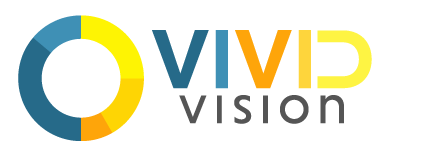What is Neuro Optometric Rehabilitation?
According to the Neuro Optometric Rehabilitation Association (NORA), neuro-optometric rehabilitation is an individualized treatment regimen for patients with visual deficits as a direct result of physical disabilities, traumatic brain injuries, and other neurological insults. Neuro-optometric therapy is a process for the rehabilitation of visual / perceptual / motor disorders. It includes, but is not limited to, acquired strabismus, diplopia, binocular dysfunction, convergence and/or accommodation paresis/paralysis, oculomotor dysfunction, visual-spatial dysfunction, visual perceptual and cognitive deficits, and traumatic visual acuity loss.
Who can benefit from Neuro Optometric Rehabilitation?
Patients of all ages who have experienced neurological insults require neuro-optometric rehabilitation. Visual problems caused by traumatic brain injury, cerebrovascular accident, cerebral palsy, multiple sclerosis, etc., may interfere with performance causing the person to be identified as learning disabled or as having attention deficit disorder. These visual dysfunctions can manifest themselves as psychological sequelae such as anxiety and panic disorders as well as spatial dysfunctions affecting balance and posture.
What is included in the neuro optometric rehabilitation plan and how long does it last?
A neuro-optometric rehabilitation treatment plan improves specific acquired vision dysfunction determined by standardized diagnostic criteria. Treatment regimens encompass medically necessary non-compensatory lenses and prisms with and without occlusion and other appropriate medical rehabilitation strategies. Some rehabilitation may last weeks or months, while others may last years. Programs and treatments will change as a patient’s particular needs change.
Brain Injuries and Vision
Visual problems are often overlooked during initial treatment of a brain injury and a regular eye exam often does not reveal the extent that the visual process has been affected. Individuals who have experienced some sort of neurological insult or injury, and who are experiencing visual symptoms, can benefit from a vision assessment from a Neuro-Optometric Rehabilitation Optometrist, an eye care professional who specializes in the diagnosis, treatment, and rehabilitation of neurological conditions adversely affecting the visual system.
What is the difference between Neuro Optometric Rehabilitation and Vision Therapy?
According to NORA, neuro-Optometric Rehabilitation is a specialized, individualized treatment regimen for those who have visual deficits as a direct result of physical disabilities, traumatic brain injuries, and other neurological insults. Neuro-Optometric Rehabilitation therapy utilizes therapeutic prisms, lenses, filters and occlusion to help stimulate parts of the brain which are not functioning to their highest potential, due to interruptions caused by the brain injury.
Neuro-Optometric Rehabilitation is not to be confused with vision therapy, which is an additional therapy needed by some brain injury survivors. Vision therapy is a highly effective non-surgical treatment for many common visual problems such as lazy eye, crossed eyes, double vision, convergence insufficiency and some reading and learning disabilities. In the case of learning disabilities, vision therapy is specifically directed toward resolving visual problems which interfere with reading, learning and educational instruction.
Not all doctors who do vision therapy are trained in Neuro-Optometric Rehabilitation.
Where can I get more information about Neuro Optometric Rehabilitation?
We suggest visiting the NORA website: www.noravisionrehab.org
The Vision Wiki
- Physiology of Vision
- The Brain
- Visual System
- Fifth Cranial Nerve
- Third Cranial Nerve
- Second Cranial Nerve
- Complex Cells in the Visual Cortex
- Sixth Cranial Nerve
- Seventh Cranial Nerve
- Visual Cortex
- Eye Muscles
- Binocular Neurons
- Simple Cells in the Visual Cortex
- Fourth Cranial Nerve
- Neuroplasticity
- Brain Injury
- Acquired Brain Injury
- Neuro Optometric Rehabilitation
- Traumatic Brain Injury
- Sports and Brain Injury
- The Eyes
- Gabor Patches
- Visual Snow
- Ocular Immune System
- Evolution Of Eyes
- Blue Field Entoptic Phenomena
- Bates Method
- Ophthalmology Lecture
- Optical Illusions
- Stereo Illusions
- Eye Problems
- Binocular Vision
- Lazy Eye
- Lazy Eye Treatments
- Reading
- Fields of Study
- Research
- Glaucoma
- Virtual Reality
- Organizations
